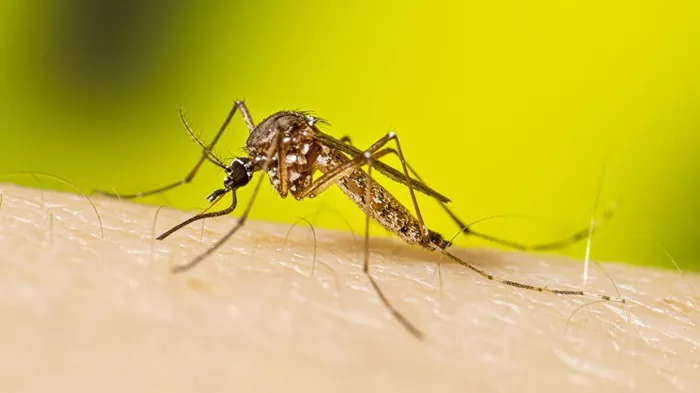Maine is contemplating declaring a public health emergency due to a surge in mosquito-borne illnesses affecting animals across the state. The decision comes after over a dozen reports of such diseases, including recent confirmations of Eastern Equine Encephalitis (EEE) in animals.
On Friday, state health and agriculture officials reported the latest case of EEE in a horse from Somerset County, marking the third animal to be diagnosed with this disease. Additionally, two emus in Penobscot County have been infected with EEE, and Maine has also seen 15 cases of West Nile virus in wild birds. These diseases, once rare in Maine, have become increasingly common in recent years.
The state’s Arboviral Public Health Panel has recommended declaring a public health emergency in response to the rising cases. This measure, distinct from a state of emergency like that declared during the COVID-19 pandemic, could expedite municipal interventions and permit issuance to address the mosquito-borne health threats more effectively. If approved by Governor Janet Mills, it would be the first public health emergency in Maine specifically related to mosquito-borne illnesses.
The increase in mosquito-borne diseases in New England is believed to be linked to climate change, which extends the mosquito breeding season into the fall before frost kills the insects. In 2023, Maine reported 17 cases of EEE and three cases of West Nile virus in animals, according to the Maine Centers for Disease Control and Prevention (CDC).
Protecting Yourself from Mosquito-Borne Illnesses
Maine primarily tracks three mosquito-borne illnesses: EEE, West Nile virus, and Jamestown Canyon virus. Although human cases are rare, mosquitoes carrying these viruses can bite and infect people. A recent case in New Hampshire resulted in the death of a man from EEE, and some Massachusetts towns have advised residents to avoid outdoor activities after dusk.
Routine surveillance has also detected Jamestown Canyon virus in mosquito pools across Maine. To protect against mosquito bites, the CDC advises using EPA-registered insect repellents containing DEET, Picaridin, oil of lemon eucalyptus, or IR3535. Additional precautions include limiting outdoor activities from dusk to dawn, wearing long sleeves and pants, and eliminating standing water around homes.
In Portland, locals are taking various measures to fend off mosquitoes. Lesley Hurley of South Portland, who walks her dogs in Hinckley Park, applies natural bug repellents to her pets and uses insect repellent herself during outdoor activities. Similarly, Heather and Aaron Walsen from Portland use DEET and citronella products to protect their children while playing outside.
Ignacio Gomez, a cultivator from Brunswick, also prioritizes mosquito protection by using lemongrass oil repellent during his outdoor work.
Health Risks and Recommendations
Most individuals infected with mosquito-borne diseases experience mild symptoms or none at all, such as fever, chills, body aches, nausea, and tiredness. Severe cases can lead to serious symptoms including disorientation, muscle weakness, neck stiffness, brain inflammation, and even coma. Although no specific treatments are available for these viruses, some symptoms can be managed with over-the-counter medications.
According to Haris Sohail, a vectorborne and zoonotic epidemiologist at Maine CDC, severe cases of mosquito-borne illnesses have a high mortality rate, with up to 30% of those with severe symptoms dying from the infection. Survivors may face significant lifelong complications.
Since 2014, Maine has reported two human cases of EEE, one of which was fatal, and five cases of West Nile virus with no fatalities. The state has also documented four cases of Jamestown Canyon virus, including one death.
As Maine evaluates the need for a public health emergency declaration, residents are urged to remain vigilant and take necessary precautions to reduce the risk of mosquito-borne illnesses.
[inline_related_posts title=”You Might Be Interested In” title_align=”left” style=”list” number=”6″ align=”none” ids=”4163,10241,9887″ by=”categories” orderby=”rand” order=”DESC” hide_thumb=”no” thumb_right=”no” views=”no” date=”yes” grid_columns=”2″ post_type=”” tax=””]
































